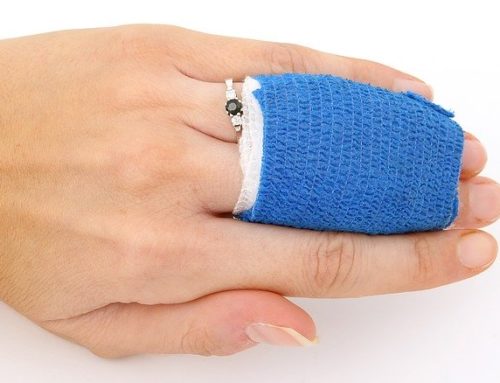“It’s not if you get sued,” notes The New England Medical Journal. “It’s when.”
Sobering words, but true ones, too. Doctors are expected to work a lot like mechanics: x is wrong, so they do y thing, with z result. In reality, results are unpredictable, diagnosis isn’t straightforward, and bad things happen.
It’s a recipe for trouble in a litigious society. It’s vital to know what to do when (not if) you get sued.
Contact an attorney.
This should absolutely be your first move from the moment you receive notice that one of your patients intends to sue you. Oddly it might not be your first reaction. Your first reaction may be to argue, fight, yell about it, or talk about it.
Being sued is an emotional thing.
But by contacting an attorney first you can make sure you don’t do anything to jeopardize your case.
Contact your malpractice insurance.
If you have a malpractice policy you’ll also want to contact your provider at the earliest available opportunity. Your insurer will have some further instructions for you.
Spend as much time with the attorney as necessary.
Don’t assume you can just drop everything in the attorney’s lap, then get on with the practice of medicine. You’re going to have to put in some prep work, answering the attorney’s questions and discussing the case.
You also want to spend some time learning how to be an effective defendant. Take this time to ask your attorney for additional advice about what you should and shouldn’t be doing, as well as what you should expect throughout the course of your case.
Avoid talking to others about the case.
That includes colleagues, friends, and family members. Anything you say could be used to strengthen a case against you.
It even includes the patient! Many physicians try to “educate” the problem away. They assume if they just sit down with the patient and explain everything, the patient will withdraw the lawsuit.
In reality this often backfires by giving the patient’s team more ammo to use against you. Remember, facts probably aren’t driving your patient’s decisions at all. Emotions are, and there’s no reasoning with emotions.
Keep your cool.
If you panic you’re likely to do something that’s going to make your case harder to win.
A classic example is altering medical records. It could be a quick, innocent, “explanatory” alteration. By making it, you may hope whomever reads the records will instantly understand you were right to act as you did.
In reality, you just look like you are trying to falsify records, whether that accusation makes any sense or not.
Seek help for MMSS if necessary.
MMSS stands for “medical malpractice stress syndrome.” Its symptoms are very close to PTSD. Many physicians find being sued to be very traumatic and hurtful. It leaves them second guessing themselves.
In some extreme cases it can lead to depression, or even suicide.
You can’t be at your best during your case when you’re battling MMSS. Get professional therapy. This can also help you manage other emotions and impulses you may be feeling about the case.
Stay Patient
It’s natural for you to want the case to be over with as quickly as possible, preferably decided in your favor so you can get on with your life. Unfortunately, malpractice cases don’t move fast.
If it goes to trial you might not actually enter that courtroom for another year. You can expect it to drag on.
Try not to let it consume you or dominate your every thought. There’s still a lot of other good work you can be doing. There’s still an awful lot of good life you could be having.
Make sure you’re doing everything in your power to bring the case to a successful conclusion, but recognize when you’ve done all you can. You can’t change the outcome of the case by obsessing.
See also:
How Can a Nurse or Staff Protect Against Medical Fraud Charges?
What Enforcement Actions Can Health Boards in Tennessee Take?
How Do Accusations of Fraud Negatively Affect Your Nursing License?






